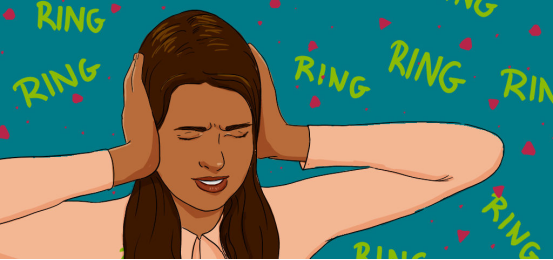Tinnitus: A Growing Concern—How New Treatments Are Offering Hope
Tinnitus, a condition characterized by ringing, buzzing, or other phantom sounds in the ears, affects millions of people worldwide. For many, it’s a silent struggle—often invisible, yet life-altering. While the cause of tinnitus can vary, from prolonged exposure to loud noises to ear infections, its impact is far-reaching, especially among those over 40. Fortunately, new advancements in treatment options are offering hope to those suffering from this relentless condition.
Tinnitus, a condition characterized by ringing, buzzing, or other phantom sounds in the ears, affects millions of people worldwide. For many, it’s a silent struggle—often invisible, yet life-altering. While the cause of tinnitus can vary, from prolonged exposure to loud noises to ear infections, its impact is far-reaching, especially among those over 40. Fortunately, new advancements in treatment options are offering hope to those suffering from this relentless condition.

The Tinnitus Challenge: Real-Life Stories
Imagine waking up every morning to a constant ringing sound in your ears—no matter where you are or what you’re doing. That’s the reality for Sarah, a 45-year-old marketing executive from Chicago. She first experienced tinnitus after attending a loud concert, and what started as a temporary ringing became a daily struggle. “At first, I thought it would go away, but it only got worse,” Sarah recalls. “I couldn’t focus at work, and I became frustrated because no one could understand what I was going through.”
Her story isn’t unique. Tinnitus can affect anyone, regardless of age, but it’s particularly common among people over 40, many of whom have had long-term exposure to noise, whether from work or leisure activities.
The Science of Tinnitus: What’s Going On?
Tinnitus is often described as a sound that only the person affected can hear. While the exact mechanism behind tinnitus isn’t fully understood, experts believe it’s linked to changes in the brain’s auditory system. When the brain stops receiving normal auditory signals, it may compensate by generating these phantom noises.
In some cases, tinnitus is associated with hearing loss, but it can also occur without any noticeable hearing impairment. Researchers believe that stress, age-related hearing changes, and even neck or jaw issues may play a role in triggering or worsening the condition.
Breakthrough Treatments That Are Changing Lives
For years, the only advice for tinnitus sufferers was to "learn to live with it," but now, that’s changing. Over the past decade, new treatments have emerged that promise relief for those who have endured the sounds of tinnitus in silence.
- Cognitive Behavioral Therapy (CBT):One of the most effective treatments for tinnitus-related distress is Cognitive Behavioral Therapy (CBT). CBT helps individuals manage the emotional toll of tinnitus by teaching coping strategies and ways to reduce the stress and anxiety that often accompany the condition. For example, a 2023 study showed that patients who underwent CBT experienced a significant reduction in their tinnitus-related distress. “I didn’t realize how much stress was affecting my perception of tinnitus,” says John, a 52-year-old accountant. “Once I learned to manage my anxiety, the ringing didn’t seem as overwhelming.”
- Tinnitus Retraining Therapy (TRT):TRT is another treatment gaining popularity, involving sound therapy and counseling to retrain the brain’s response to tinnitus. The goal is to make the sound less noticeable and less intrusive. This method has been particularly helpful for individuals like Claire, a 60-year-old retiree who had tinnitus for over a decade. “TRT helped me reduce the intensity of the ringing, and I feel like I can finally enjoy quiet moments again,” she says.
- Neuromodulation Devices:More recently, neuromodulation devices—like the Lenire system—have shown promising results. These devices use a combination of sound and electrical stimulation to “retrain” the brain and reduce the perception of tinnitus. Research conducted in 2023 revealed that patients who used neuromodulation devices reported significant reductions in their tinnitus symptoms. "I used to dread going to bed, but after a few weeks of using the device, the ringing was less bothersome," says Mark, a 48-year-old teacher.
- Medications and Supplements:While there’s no specific drug approved to cure tinnitus, some medications can help manage symptoms. Antidepressants, antianxiety drugs, and even certain supplements like ginkgo biloba have been used to help reduce the perception of tinnitus or improve the quality of life for sufferers.
How to Take Action: What You Can Do Today
If you’re experiencing tinnitus, it’s essential to consult with a healthcare professional to determine the best course of action. Early intervention can often prevent the condition from worsening.
- Seek Professional Help:Visit an audiologist or ENT specialist who can evaluate your hearing and offer tailored advice.
- Manage Stress:Practicing mindfulness, yoga, or meditation can reduce stress and help alleviate tinnitus symptoms.
- Consider Treatment Options:If you’ve had tinnitus for a while, it may be time to explore new therapies like CBT, TRT, or neuromodulation.
A Brighter Future for Tinnitus Sufferers
While tinnitus is not yet curable, the future looks promising. Advances in technology, therapy, and understanding of the brain’s response to tinnitus are all contributing to better treatments and more relief for sufferers. For many, the hope is that one day, the sound of silence will no longer feel so distant.
Tinnitus doesn’t have to be a life sentence. With the right treatment, the ringing in your ears could become a distant memory. Take the first step today to reclaim your peace and live a life less disrupted by the sounds of tinnitus.